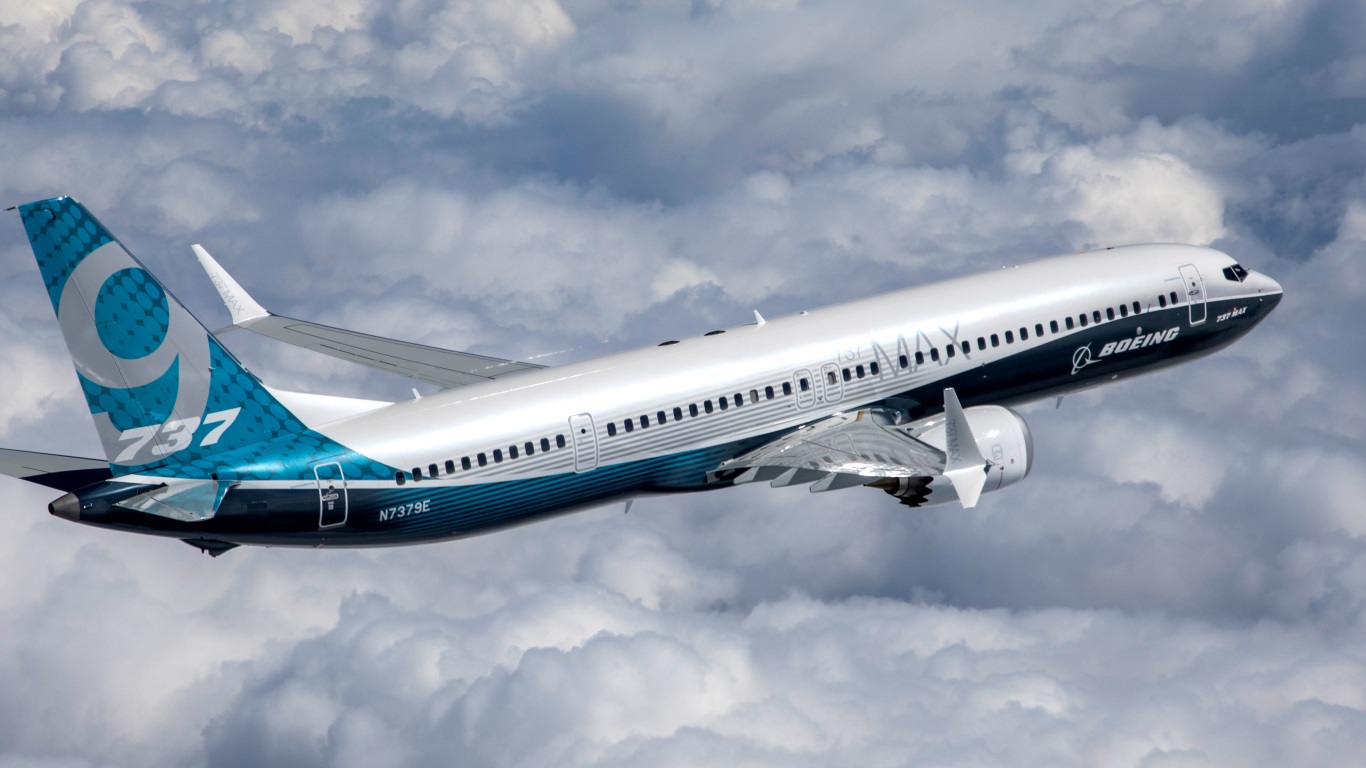Military
Not All Analysts Cheering Boeing Back Into the Skies

Published:
Last Updated:

Two deadly crashes, a global grounding of an entire fleet of planes, one pandemic and one massive recession that made the airline industry weaker than in the aftermath of the 9/11 terror attacks. And then add in a government bailout of the airline industry, and no international flights to speak of for months. That is what Boeing Co. (NYSE: BA) has faced from 2019 to 2020.
Things are changing now that 2020 is coming to an end. Boeing announced on Wednesday morning that its 737 Max, which was the plane behind two deadly plane crashes, has been recertified by the FAA to return to duty. This was great news for Boeing, even if there are still some serious business challenges in the weeks and months ahead.
With news that three COVID-19 vaccines may be available very soon, this opens the airline industry back up to some degree of normality. That’s likely not enough to expect 2019 travel traffic any time soon, but airlines will be able to start flying more routine flights again, and their planes are likely to become more full.
It’s now quite possible that the 737 Max could be flying even before the end of 2020, or at the very start of 2021. American Airlines was reportedly the first to return to the 737 Max in its schedule, but other airlines have publicly praised Boeing. Even the head of the FAA has gone on to say that the issues that were behind the two fatal 737 Max crashes are now not possible to repeat.
Not every analyst on Wall Street is jumping for joy when it comes to Boeing’s stock expectations. Boeing shares had recovered handily from the plunge-depth lows of under $100 earlier this year. Boeing then raised billions worth of private capital, it cut overhead and operating costs and it slashed its dividend. This was basically a $145 stock at the end of October. Then it rallied to above $180 and $190 after the election, but after gapping up above $220 the shares quickly slid to $203 and closed down on the same day.
Some analysts seem to be worried that too much recovery has already been factored into Boeing’s stock. Others see great potential upside ahead.
Boeing was reiterated as Positive by Susquehanna and its target was raised to $275 from $220 on November 19.
BofA Securities merely reiterated its Neutral rating on November 19, but the firm did boost its price objective up to $230 from $175. The firm noted that this 737 Max reinstatement does reduce the risk for Boeing’s stock, but notes that the jet’s return will not be immediate and will not remove all of the hurdles for the airlines.
Robert W. Baird raised Boeing to Outperform from Neutral with a $306 target price on November 18. That is the current street-high.
Goldman Sachs reiterated its Buy rating and raised its target to $245 from $231 on November 18.
Credit Suisse reiterated its Neutral rating and a $174 price target on November 18.
Citigroup has a Hold rating, but on November 18, it raised its target to $200 from $175.
While none of the analysts have trashed Boeing, at least so far, over the 737 Max recertification, even the bullish analysts are not under the impression that the Boeing of early 2019 or of 2018 is the Boeing of 2021. That said, it looks fairly universal that this recertification comes with the belief that Boeing has based out and that its worst case scenarios may be behind it.
Boeing shares closed up 1.2% at $205.71 on Thursday, in a 52-week range of $89.00 to $374.77.
Finding a qualified financial advisor doesn’t have to be hard. SmartAsset’s free tool matches you with up to 3 fiduciary financial advisors in your area in 5 minutes. Each advisor has been vetted by SmartAsset and is held to a fiduciary standard to act in your best interests. If you’re ready to be matched with local advisors that can help you achieve your financial goals, get started now.
Thank you for reading! Have some feedback for us?
Contact the 24/7 Wall St. editorial team.